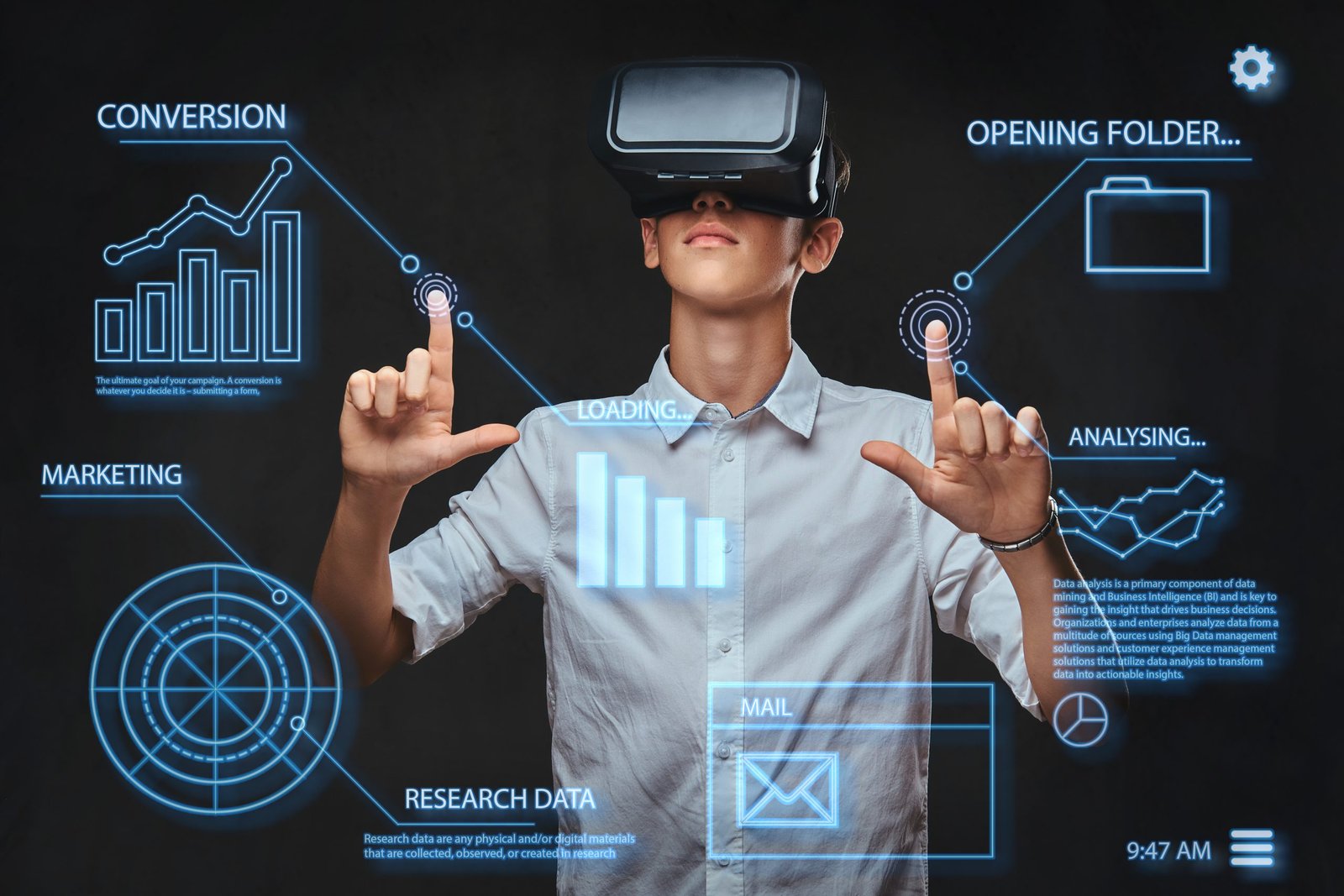5 Technological Innovations That Will Blow Your Mind
In an era defined by rapid advancements and constant change, technological innovations continue to reshape our world in ways that once seemed unimaginable. From the realms of artificial intelligence to the frontiers of space exploration, these breakthroughs are not just enhancing our daily lives but also redefining the possibilities of what we can achieve. Here are five technological innovations that will blow your mind.
Technological developments keep changing our world and pushing the boundaries of what was previously unimaginable. The future is full of opportunities that will profoundly impact on our way of life, from incredible advancements in space exploration to incredible improvements in artificial consciousness. In this article, we look at five incredible developments that will push the boundaries of our knowledge of innovation and motivate us to embrace the boundless possibilities that lie ahead.
1. Quantum Computing
Quantum computing stands at the forefront of technological innovations that promise to revolutionize numerous fields. Unlike classical computers, which use bits as the smallest unit of information, quantum computers use quantum bits or qubits. Qubits can exist in multiple states simultaneously, thanks to the principles of quantum superposition and entanglement. This allows quantum computers to process vast amounts of data at unprecedented speeds.
The potential applications of quantum computing are staggering. In cryptography, quantum computers could break current encryption methods, necessitating the development of new, quantum-resistant algorithms. In medicine, they could simulate complex molecular structures to accelerate drug discovery. Furthermore, in artificial intelligence, quantum computing could significantly enhance machine learning algorithms, leading to more powerful and efficient AI systems.
2. Brain-Computer Interfaces (BCIs)
Imagine controlling a computer or a robotic arm using just your thoughts. Brain-computer interfaces (BCIs) are making this a reality. BCIs work by capturing and interpreting neural signals from the brain, translating them into commands that can control external devices. This innovation has the potential to revolutionize how humans interact with technology.
One of the most exciting applications of BCIs is in the field of medicine, particularly for individuals with disabilities. BCIs can restore communication for people with severe speech or motor impairments, allowing them to control computers, tablets, or even robotic limbs. Additionally, BCIs have applications in neurorehabilitation, helping stroke patients regain motor functions by retraining the brain through targeted exercises.
3. Artificial Intelligence and Machine Learning
Artificial intelligence (AI) and machine learning are technological innovations that have already begun transforming industries, from healthcare to finance. AI systems, powered by advanced algorithms and vast datasets, can perform tasks that typically require human intelligence, such as recognizing speech, identifying patterns, and making decisions.
In healthcare, AI is being used to analyze medical images, predict disease outbreaks, and personalize treatment plans. In finance, machine learning algorithms can detect fraudulent transactions, optimize trading strategies, and provide personalized financial advice. Moreover, AI-driven chatbots and virtual assistants are enhancing customer service across various sectors, providing instant support and improving user experiences.
The future of AI holds even more promise. As AI systems become more sophisticated, they could enable self-driving cars to navigate complex urban environments, help scientists unlock the mysteries of the human genome, and even create art and music that rival human creativity.
4. Advanced Robotics
Technology has revolutionized the way businesses operate by automating and streamlining various processes. Technology is revolutionized the business world by using robotics. Robotics has made tremendous strides, evolving from simple mechanical machines to sophisticated systems capable of performing complex tasks with precision and adaptability. Advanced robotics is one of the most exciting technological innovations, with applications spanning manufacturing, healthcare, and even space exploration.
In manufacturing, robots are increasingly used for tasks such as assembly, welding, and quality control, improving efficiency and reducing human error. In healthcare, robotic surgeons can perform minimally invasive procedures with unparalleled accuracy, reducing recovery times and improving patient outcomes. Additionally, service robots are being developed to assist with tasks ranging from cleaning and delivery to elder care.
Space exploration is another area where advanced robotics is making a significant impact. Robotic rovers and landers are being deployed to explore distant planets and moons, gathering valuable data, and expanding our understanding of the universe. These robotic explorers can operate in extreme conditions, paving the way for future crewed missions to Mars and beyond.
5. Biotechnology and Genetic Engineering
Biotechnology and genetic engineering are revolutionizing the fields of medicine, agriculture, and environmental science. These technological innovations involve manipulating biological systems. The organisms to develop new products and solutions that address some of the world’s most pressing challenges.
In medicine, genetic engineering techniques such as CRISPR-Cas9 are enabling scientists to edit genes with unprecedented precision. This has opened new possibilities for treating genetic disorders, developing personalized medicine, and even eradicating diseases such as malaria. In agriculture, biotechnology is being used to create genetically modified crops that are more resistant to pests, diseases, and environmental stress, helping to ensure food security for a growing global population.
Environmental applications of biotechnology include developing biofuels as sustainable energy sources and using genetically engineered microorganisms to clean up oil spills and other pollutants. These innovations have the potential to mitigate the impact of human activities on the environment and promote a more sustainable future.
Conclusion
Technological innovations continue to push the boundaries of what is possible, transforming our lives into ways that were once the stuff of science fiction. From the mind-bending capabilities of quantum computing to the life-changing potential of brain-computer interfaces, these advancements are not only enhancing our daily lives but also opening new frontiers of knowledge and opportunity. As we look to the future, the pace of technological innovation will only accelerate, bringing with it new challenges and exciting possibilities.
Technology has a bright future ahead of it, with advances that will change every part of our lives. The potential is absolutely astounding, ranging from the limitless computational capacity of quantum computing to neural interfaces that link humans and machines. Biotechnology, space exploration, and autonomous cars are rewriting the rules of life, pushing the limits of human activity, and revolutionizing transportation. Since the future is full of opportunities to inspire, amaze, and better the world we live in, let us approach these technological advancements with an open mind and unwavering curiosity as we set out on this journey. Our imagination is the only restriction.










